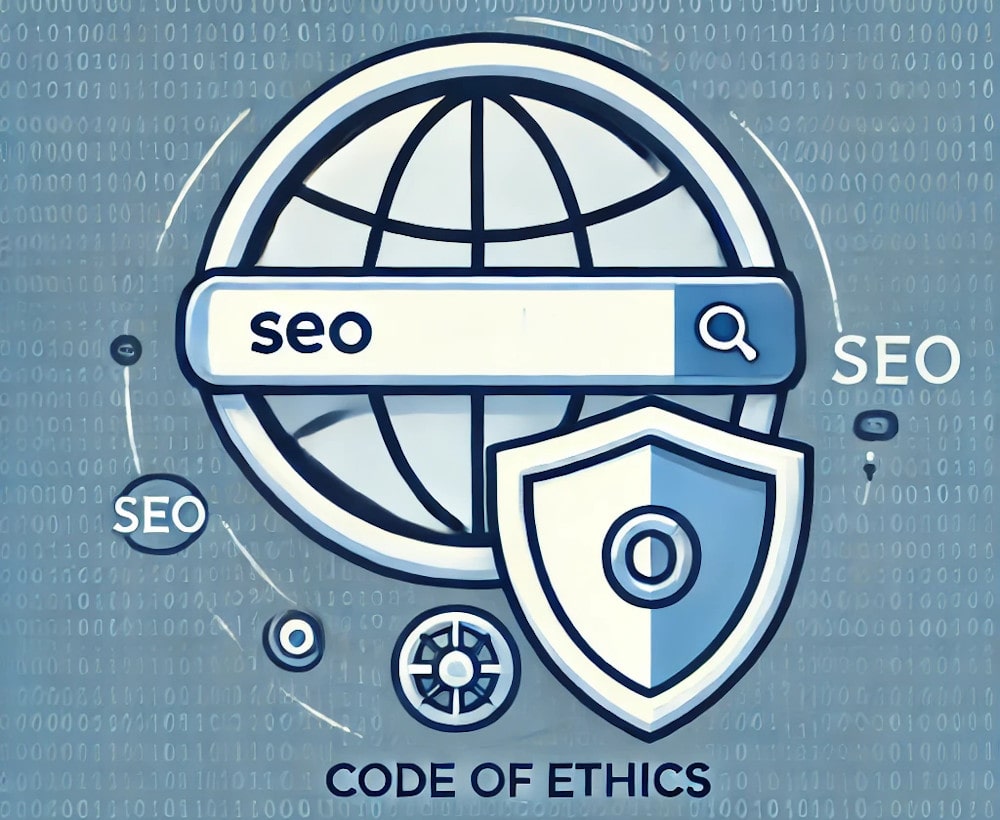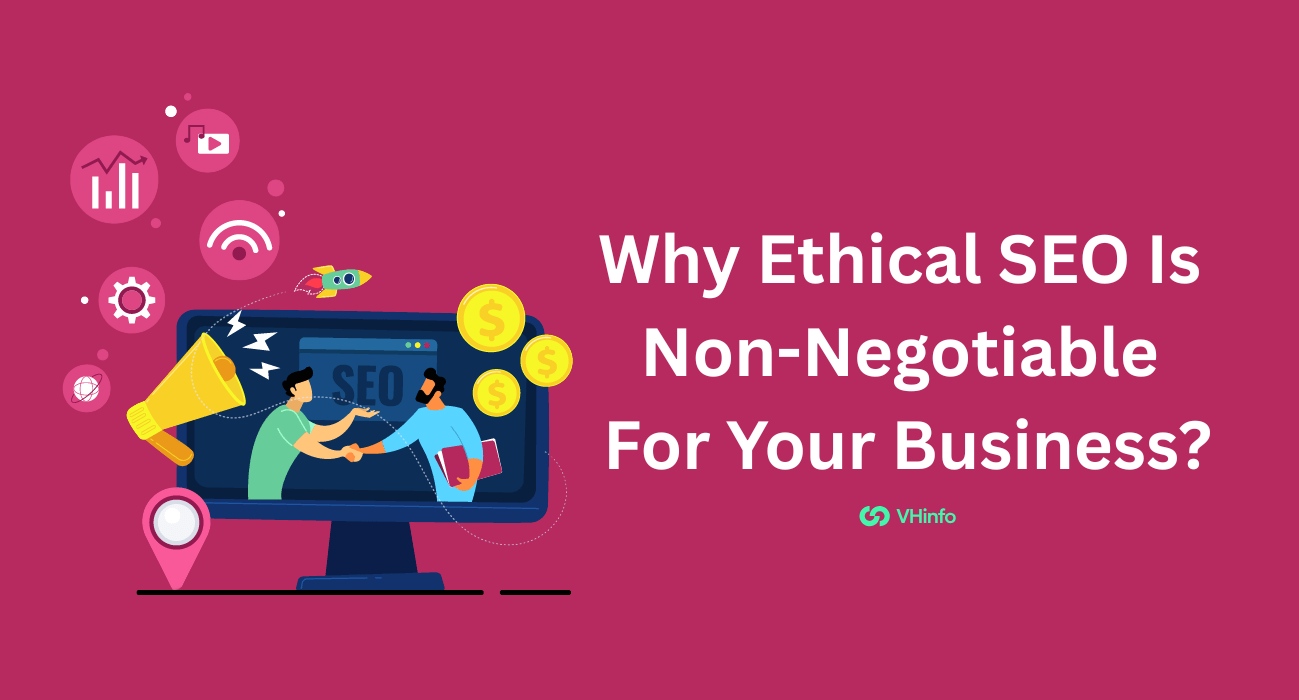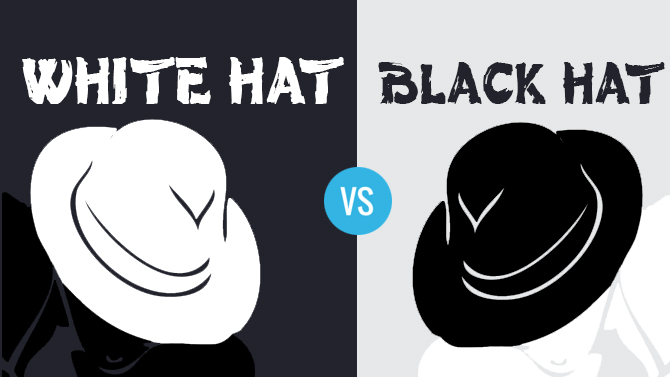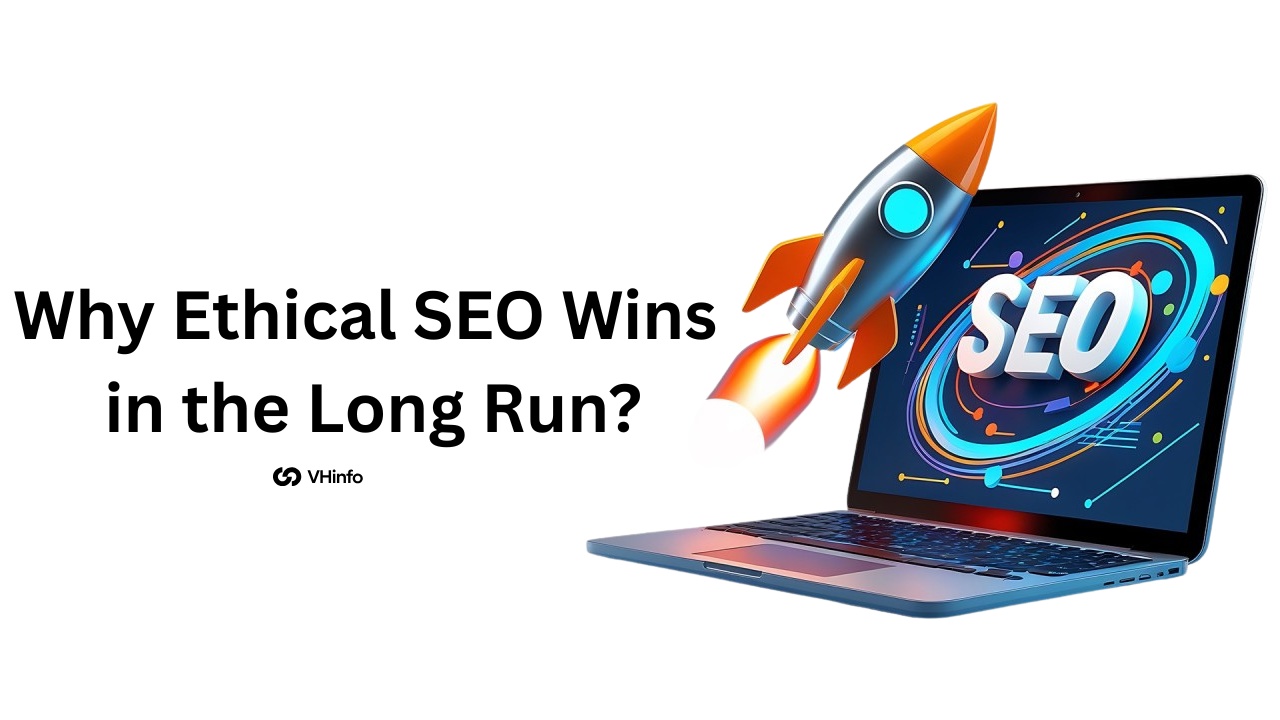Search engine optimization, or SEO, is about helping your website show up in search results on sites like Google. When people search for things related to your business, you want them to find you. But how you get your website to the top is very important.
There are two main paths: the right way and the wrong way. The right way is called ethical SEO. This approach is about building a great website that helps people and follows the rules. The wrong way uses tricks and shortcuts that can get your site penalized.
This guide will explain what ethical SEO is and why it’s the only path for long-term success.
We will look at the best practices that build a strong online presence and the unethical practices you must avoid. A good seo strategy isn’t just about pleasing search engines; it’s about building trust with your target audience and creating a digital asset that grows in value over time.
What is Ethical SEO?

Ethical SEO, also known as white hat SEO, is the practice of improving a website’s search rankings by using methods that are approved by major search engines like Google and Bing. Think of it as following the rules of the game. Instead of looking for shortcuts or using manipulative tactics, ethical SEO focuses on creating a great user experience and providing valuable content to the target audience.
The main goal is not just to please search engine algorithms, but to genuinely help the people visiting the website.
This approach involves SEO practices that are honest, transparent, and designed for long-term success. It’s about earning your spot at the top of search engine results, not tricking your way there. Good SEO efforts always prioritize the user.
Understanding the Core Principles of Ethical SEO

Ethical search engine optimization is built on a few simple, powerful ideas. These principles guide every decision you make in your SEO strategy to make sure you are doing good SEO.
Prioritizing the User Experience (UX) Above All Else
The most important part of ethical SEO is the user. A positive user experience means your website is easy to use, fast, and helpful.
Ask yourself: Can visitors find what they are looking for quickly? Does the web page load fast on phones and computers?
Is the website design clean and simple? When you make your website great for people, search engines notice. A good user experience keeps people on your site longer, which signals to Google that you have quality content. This is a core part of good SEO.
Adhering to Search Engine Guidelines (Google, Bing, etc.)
Search engines like Google have rules, which they call search engine guidelines. These guidelines explain what they consider to be good and bad seo practices. Ethical SEO means reading, understanding, and following these rules.
These guidelines are not there to make things hard; they exist to protect users from low-quality and spammy websites.
Following them ensures your seo efforts are safe and effective. Ignoring these rules is the fastest way to get your website penalized or removed from search results entirely.
Creating Honest, High-Quality, and Valuable Content
Content is the heart of any seo strategy. Ethical SEO requires creating honest, original, and valuable content that answers your audience’s questions. This could be in the form of blog posts, articles, videos, or case studies.
The goal is to produce relevant content that helps people, not just to rank for relevant keywords. Avoid creating thin or duplicate content. Instead, focus on becoming a trusted resource in your industry by publishing the best, most helpful information you can.
This is what builds a loyal audience and earns quality backlinks naturally.
Aiming For Sustainable, Long-Term Results
Black hat SEO might offer quick wins, but they rarely last. Ethical SEO is a long-term strategy. It’s about making steady improvements that build on each other over time. This approach leads to sustainable growth and stable search engine rankings. Think of it like building a house.
You need a solid foundation before you can put up the walls. Rushing the job leads to problems down the road.
By investing in white hat techniques, you are building a valuable business asset that will continue to bring in organic traffic for years to come. This is the goal of a smart online marketing plan.
Why Ethical SEO Is Non-Negotiable For Your Business?

Choosing ethical SEO over unethical SEO is one of the most important decisions you can make for your online business. It affects everything from customer trust to your bottom line.
Builds Trust and Brand Credibility
When you use ethical practices, you show both users and search engines that you are trustworthy. A clean, fast, and helpful website makes people feel safe and valued. This process of building trust is essential for creating a strong brand reputation.
People are more likely to buy from a brand they trust, and a good reputation makes every part of your digital marketing more effective. Building trust with your audience is a key benefit.
Mitigates Risk of Ranking Penalties
Unethical SEO practices come with a huge risk: penalties from search engines.
A penalty can cause your search rankings to drop overnight, or your site could be removed from the index completely. This means all your organic traffic disappears. It can take months or even years to recover from a penalty, if ever.
Ethical SEO protects your website from these risks. By following search engine guidelines, you ensure that your hard work won’t be undone by an algorithm update or a manual penalty.
Drives Higher Quality Traffic and Conversions
Ethical SEO focuses on attracting your ideal target audience by creating relevant content that matches what they are searching for.
This means the people who land on your site are more likely to be genuinely interested in what you offer. This higher quality traffic leads to better conversion rates, whether that means more sales, sign-ups, or inquiries. You get visitors who are looking for exactly what you provide.
Creates A Future-Proof Digital Asset
Search engine algorithms are always changing.
They are getting smarter and better at spotting manipulative tactics. A website built on unethical SEO is on borrowed time. Sooner or later, the tricks will stop working. A website built using ethical SEO strategies, however, is a future-proof asset.
Because it focuses on user experience and quality content—the two things search engines will always value—it is much more likely to withstand algorithm updates. You are building a strong online presence that will last for the long run.
The Ethical Divide: White Hat Vs. Black Hat SEO

In search engine optimization, there are two main paths: the right way and the wrong way. These are known as white hat and black hat.
White Hat Techniques (The Ethical Approach)
White hat SEO is another name for ethical SEO. These are the SEO techniques that search engines recommend. They focus on providing value to humans. Some examples of white hat practices include:
- Creating high-quality, relevant content.
- Doing proper keyword research to find what users are searching for.
- Improving your website’s speed and making it mobile-friendly.
- Earning quality backlinks from other quality websites.
- Making your website design easy for people to use.
These are the best practices for sustainable growth.
Black Hat Tactics to Avoid At All Costs
Black hat SEO involves using unethical practices to try and cheat the system. These black hat tactics are risky and violate search engine guidelines. Some common examples include:
- Keyword stuffing: Repeating keywords over and over.
- Hidden text: Hiding text or links so only search engines can see them.
- Cloaking: Showing different content to search engines than to users.
- Buying links or using link farms.
These unethical SEO tactics can lead to severe penalties.
The Dangers of “Gray Hat” SEO
Gray hat SEO sits somewhere between white hat and black hat. These are tactics that are not explicitly forbidden but are still manipulative and risky.
For example, buying old domains just for their authority or creating a network of personal blogs to link back to your main site. While it might seem like a clever shortcut, gray hat SEO is dangerous because search engine algorithms are always getting better at spotting manipulation.
What is gray hat today could be considered black hat SEO tomorrow. It’s best to stick to clean, white hat SEO for true sustainable growth.
Key Pillars of an Ethical SEO Strategy

A strong, ethical SEO strategy is built on four main pillars. Each one is important for building a powerful and sustainable online presence.
Ethical On-Page SEO: Title Tags, Content, and Intent
On-page SEO refers to all the things you do on your actual web page to improve its ranking.
This includes using relevant keywords naturally in your titles, headings, and text. Most importantly, it’s about matching your quality content to the user’s intent. Are they looking to learn something, buy something, or find a specific website? Your page should deliver exactly that.
Ethical Off-Page SEO: Earning Links, Not Buying Them
Off-page SEO mostly involves actions taken outside of your own website to impact your rankings within search engine results pages.
The most important part of this is link building. Ethical link building is about earning quality backlinks from other reputable, quality websites. This happens naturally when you create great content that other people want to share.
At VH Info, our SEO services focus on ethical practices like guest posting on relevant sites, which helps you earn these valuable links. This is the opposite of using link schemes or buying links, which are unethical practices.
Ethical Technical SEO: Accessibility and Performance
Technical SEO makes sure that search engines can find, crawl, and index your website without any problems. This includes having a fast-loading site, a mobile-friendly design, and a secure connection (HTTPS).
Ethical technical SEO ensures that your site is not just accessible to search engine bots, but also to all users, including those with disabilities. A technically sound site provides a better user experience for everyone.
Ethical Local SEO: Building Community Trust
For businesses that serve a specific geographic area, local SEO is very important.
Ethical local SEO involves creating and optimizing your Google Business Profile, getting real reviews from happy customers, and making sure your business name, address, and phone number are consistent everywhere online.
It’s about becoming a trusted part of the local community online, which helps local customers find you in search results.
Ethical SEO: Good Practices

Here are some of the most important ethical SEO practices to follow:
- Creating High-Quality Content: This is the number one rule. Your content must be original, helpful, and well-written. It should answer questions and solve problems for your target audience.
- Following Search Engine Guidelines: Always stay up-to-date with the guidelines from Google and other major search engines. This keeps your SEO efforts safe and effective.
- Conducting Keyword Research and Optimization: Use keyword research to find the terms your audience uses. Then, place these relevant keywords naturally in your content, titles, and headings without overdoing it.
- Building Natural Backlinks: Focus on earning links from other respected websites in your industry through great content and outreach. This is a powerful signal of trust. An experienced SEO agency can help you with this.
- Respecting the Intellectual Property of Other Brands: Never copy content, images, or ideas from another website. Always create your unique material or give proper credit. This helps build your brand reputation.
- Ensuring Transparency: Be honest with your visitors. If you are using affiliate links or sponsored content, disclose it. Transparency helps build trust.
- Making Websites User-Friendly: A great website design is simple, clean, and easy to navigate. This is key to a positive user experience. Website owners should prioritize this.
- Use an Ethical Web Analytics Solution: Track your website’s performance with tools that respect user privacy. This allows you to make data-driven decisions without compromising user trust.
Unethical SEO: Bad Practices

Here are some of the most common unethical SEO practices to avoid:
- Keyword Stuffing: This is the act of loading a web page with keywords to manipulate search rankings. It makes the text sound unnatural and offers a poor user experience. Search engines can easily detect and penalize this.
- Cloaking: This is a deceptive practice where the content presented to the search engine spider is different from that presented to the user’s browser. This is a clear violation of search engine guidelines.
- Deceiving Functionality: This happens when a website promises one thing but delivers another. For example, a button that says “download movie” but instead installs malware. This is a major trust-breaker and a black hat tactic.
- Fraudulent Redirects: This involves sending a user to a different URL than the one they clicked on, without their consent. It’s a bait-and-switch tactic that is highly penalized by search engines.
- Negative SEO: This is the malicious practice of using black hat tactics on a competitor’s website to harm their rankings. It’s an attack that goes against the spirit of fair competition in online marketing.
- Hidden Text: This involves hiding text or links on a page, for example, by making the text the same color as the background. This is an old black hat tactic designed to trick search engines, but it is easily caught.
Why Ethical SEO Wins in the Long Run?

Some website owners might be tempted by the quick results promised by black hat SEO, but ethical SEO is always the winning SEO strategy for a serious business.
- Sustained Rankings: Rankings gained through unethical practices are temporary. Search engines will eventually find the manipulation, and the rankings will disappear. Ethical SEO practices build rankings that are stable and last over time. They are based on real value, not tricks.
- Trust From Users: Trust is everything online. Users who feel tricked or spammed by your website will leave and never come back. They might even share their bad experience on social media. Ethical practices build trust, which leads to loyal customers and a positive brand reputation.
- Avoiding Penalties: The biggest reason to choose ethical SEO is to avoid penalties. A penalty can make your website invisible on search engines, cutting off your most valuable source of organic traffic. The damage can take months or even years to fix, if it can be fixed at all. It is simply not worth the risk.
The Future of Search is Ethical

The world of search engine optimization is always evolving. Search engine algorithms are becoming more advanced every day. They are getting better at understanding content, context, and user intent. Their goal is to provide the best and most relevant results for users.
Because of this, the future of SEO is firmly rooted in ethical practices. Tricks and loopholes will continue to disappear. The websites that will succeed in the future are the ones that focus on quality, transparency, and a great user experience.
Committing to ethical SEO today is the best way to prepare your business for tomorrow.
FAQ’s:
What is the Difference Between Ethical and Unethical SEO?
Ethical SEO (white hat) focuses on helping users and following search engine guidelines. It uses techniques like creating quality content and earning natural links. Unethical SEO (black hat) uses tricks like keyword stuffing and hidden text to manipulate search results, which violates guidelines and creates a poor user experience.
How Can Ethical SEO Benefit A Website?
Ethical SEO builds trust, improves brand reputation, drives high-quality organic traffic, and leads to sustainable growth. It protects your site from penalties and creates a future-proof digital asset that provides value for the long run.
What Are the Risks of Using Unethical SEO Practices?
The risks are severe. You can face harsh penalties from search engines, including a total removal from search engine results. This leads to a massive loss of traffic, damages your brand reputation, and can destroy your business’s online presence.
What Are Some Examples of Unethical SEO Tactics?
Some common unethical SEO tactics include keyword stuffing, cloaking (showing different content to users and search engines), using hidden text, buying links from link farms, and using fraudulent redirects.
Are Ethical SEO Results Slower Than Using Manipulative Tactics?
Yes, ethical SEO results can take more time to appear than results from black hat tactics. However, they are stable, sustainable, and safe. Manipulative tactics offer quick, risky gains that often lead to long-term failure and penalties.
Ethical SEO is an investment in long-term success.
How Can A Website Ensure It Is Using Ethical SEO Practices?
To ensure you are using ethical SEO practices, focus on creating high-quality, relevant content for your target audience.
Follow search engine guidelines, build a user-friendly website, and earn quality backlinks naturally. Partnering with a reputable SEO agency like VH Info, which specializes in white hat link building and SEO services, can also ensure your strategy is ethical and effective.
Conclusion
In the world of digital marketing, there are no sustainable shortcuts to success. Ethical SEO is not just an option; it is the only responsible way to build a lasting and profitable online presence.
Focusing on your users, producing valuable content, and following search engine guidelines establishes a strong basis for your business. This strategy fosters trust, safeguards your brand, and ensures sustainable growth that can withstand any algorithm change.
The choice between white hat and black hat is a choice between long-term success and short-term risk. For any serious business, the answer is clear. Invest in ethical SEO strategies today to secure a better ranking and a stronger brand tomorrow.



